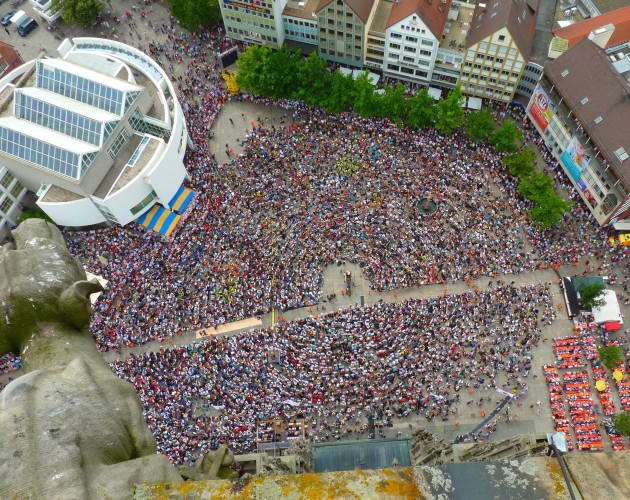Module details
- Offered to 3rd & 4th Years
- Thursdays 16.00-18.00
- Planned delivery: On campus (South Kensington)
- Two-term module, worth 5 ECTS
- Available to eligible students as part of I-Explore
- Extra Credit, or Degree Credit where your department allows
No one thinks alone; it is always something we do in groups. But how do we think together and collectivise our mental resources to the best effect? To answer this question, we will need to draw on a huge range of disciplines: history, politics, economics, psychology, neuroscience, science-fiction and even entomology (insects also do a lot of collective thinking).
There are lots of groups in which you can see a common mind or collective intelligence at work: packs, swarms, herds, tribes, corporations, colleges and classrooms, markets and governments. Ever increasingly, the job of connecting our individual minds up together has been taken on by technology and the networks of information that wire us up together. Very soon we may see super-intelligent technologies taking-over the job of organising human society altogether.
This module will take you through the debates around collective intelligence and follow the evolution of the group-mind from past to present and on into the future. We will be looking at how the act of thinking together can go wrong in paranoid conspiracy theories, information bubbles and market panics and how, perhaps, it might be done better.
Collective Intelligence
The Philosophy and Psychology of Thinking in Groups and Crowds
Published on May 17, 2022
Listen to Dr Matt Wraith talking about the Collective Intelligence module
Please note: The information on this module description is indicative. The module may undergo minor modifications before the start of next academic year.
Information blocks
- Analyse structures of collective thinking in a wide variety of different social and historical settings: organisations, corporations, colleges and classrooms, markets, governments, nations, and insect swarms
- Identify and evaluate optimum social arrangements for collective reasoning
- Assess the impact of different forms of communication technology on public knowledge and public discourse
- Apply this understanding to create forecasts of possible and likely effects of forthcoming developments in technology

- How public opinion is formed
- How hierarchies of knowledge contrast with distributed networks of knowledge
-
The madness of crowds vs. the wisdom of crowds
-
Some early history of the World Brain idea in H.G. Wells and Stafford Beer
-
The role of information networks, platforms and algorithms in shaping public knowledge and opinion
-
How human communication systems compare to other biological information systems
-
The emergence of AI in human organisation and public discourse and its implications for the future of government and society
Coursework: Essay - 1500- 2000 words (50%)
Practical: Individual 10-15 minute presentation (50%)
- Requirements: You are expected to attend all classes and undertake approximately 85 hours of independent study in total during the module. Independent study includes reading and preparation for classes, researching and writing coursework assignments and preparing for other assessments.
- This module is designed as an undergraduate Level 6 module. For an explanation of levels, view the Imperial Horizons Level Descriptors page.
Got any questions?
Contact the lecturer
Dr Matthew Wraith
m.wraith@imperial.ac.uk

